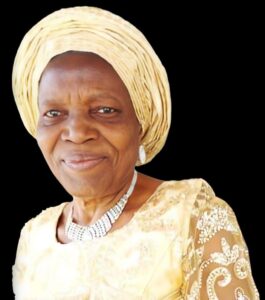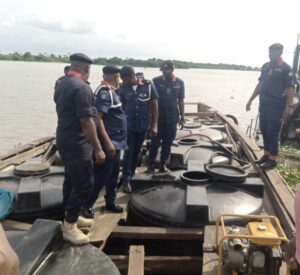Chevron MD Encourages Collaboration for Economic Growth in the Niger Delta
By Our Correspondent
Chevron Nigeria Limited (CNL), the operator of the NNPC/Chevron Joint Venture has reiterated the importance of partnership to the growth of business in the Niger Delta area of Nigeria. Mr. Clay Neff, Chairman and Managing Director of CNL made the comment recently in Washington at the maiden Niger-Delta Development Forum (NDDF) hosted by the Niger Delta Partnership Initiatives (NDPI), a Chevron-supported foundation working to develop new solutions to economic and social challenges in the Niger Delta.

Left to Right: Mr. Robert Perry, VP, Corporate Council on Africa, Mr. Clay Neff, Chairman and Managing Director, Chevron Nigeria Limited and Mr. Uwa Igiehon, Chief Executive Officer, Greenpark Petrochemical, at the maiden Niger-Delta Development Forum (NDDF) hosted in Washington by the Niger Delta Partnership Initiatives (NDPI), a Chevron-supported foundation working to develop new solutions to economic and social challenges in the Niger Delta.
The forum was attended by the private and public sectors, NGOs and government representatives from Nigeria and the Unites States of America. Its mandate was to explore collaborative efforts for creating long-term economic stability of the Niger Delta.
During a panel discussion on the topic – Partnering to Grow Business in the Niger Delta moderated by the Vice President of the Corporate Council on Africa (CCA), Ambassador Robert Perry (rtd). Mr. Neff stressed the importance of partnership between the public and private sectors for the growth of business in the Niger Delta on Nigeria.
Such a partnership, he stated, must be mutually beneficial and should entail extensive dialogue with all stakeholders. His words: “I believe that public and private sector entities should seek mutually beneficial solutions, and at Chevron we are interested in all the solutions available for the economic and social development of the Niger Delta.”
Mr. Neff further said that “Chevron has seen firsthand the importance of working with people closely and building solutions where they feel very much a part of the process. It never works to simply ram things through, nothing lasts that way.”The panelists included the President and Chief Executive Officer of Initiative for Global Development (IGD) Mr. Mima Nedelcovych and Chief Executive Officer of Greenpark Petrochemical, Mr. Uwa Igiehon. The forum was to explore collaborative efforts for creating long-term economic stability of the Niger Delta.
Mr. Clay commended NDPI and the Nigerian sister organization Partnership Initiatives in the Niger Delta (PIND) for the quality of the projects they have executed so far and the passion of the team to the development of the Niger Delta area. He described the PIND/NDPI seed grant of U.S.$50m followed by U.S.$40m made available for 2015 to 2019 as an investment in economic development in the Niger Delta.
As part of effort to encourage young people to go into agriculture, Mr. Sam Daibo, Executive Director, PIND, said the foundation has been making agriculture attractive to youths through enlightenment campaigns focusing on the many opportunities in the agriculture value chains. “It’s not just about going to the farm and planting cassava. You can be the one who supplies the fingerlings for fisheries, or tractors and land clearing services. Agriculture isn’t just one thing. It’s an entire value chain with very real potential to see high income generation for young people,” Mr. Daibo added.
PIND was established in 2010 as a non-profit foundation in Nigeria and it serves the operational entity of NDPI. PIND’s main function is to help alleviate poverty and promote peace in the Niger Delta region by building dynamic, innovative programmes and multi-stakeholder partnerships that provide broad stakeholder support for projects in four main focus areas of economic development, capacity building, peace building and analysis, and advocacy. NDPI on the other hand has a broader function which covers developing new solutions to economic and social challenges in the Niger Delta through a partner-centric approach based on regional knowledge to understand the root causes of economic instability and forge community owned, market-driven results.



